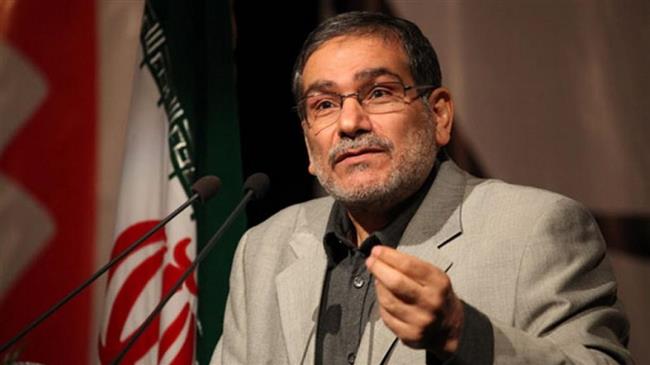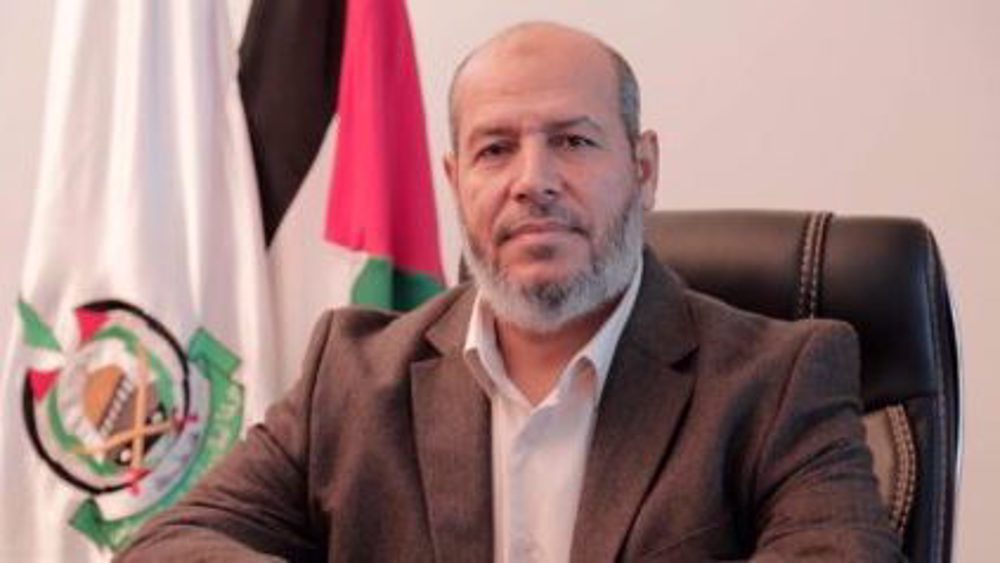Iran military advisory presence in Iraq, Syria aimed at fighting terrorism: Shamkhani
A senior Iranian official says legitimate governments of Iraq and Syria have called for Iran's military advisory presence in their countries in order to help them fight terrorism.
Secretary of Iran's Supreme National Security Council (SNSC) Ali Shamkhani made the comments on Tuesday after US Secretary of State Mike Pompeo said on Monday that Washington will increase the financial pressure on Iran by imposing the "strongest sanctions in history" on the Islamic Republic if Tehran refuses to change the course of its foreign and domestic policy.
Speaking weeks after the United States' move to pull out from a nuclear agreement Iran signed with major powers in 2015, he laid out 12 tough conditions for any "new deal" with Tehran. The conditions included withdrawal of Iran's military advisors from Syria and the Islamic Republic's respect for the Iraqi government's sovereignty.
Shamkhani said the world confirms that Iran has played a leading role in preventing the expansion of Daesh in Iraq, Syria, Lebanon and even Europe.
"The ire of the US and this country's allies, who were the main creators and sponsors of Takfiri terrorism and the final losers of this battlefield, is understandable," the SNSC secretary added.
He emphasized that the "futile" US efforts to limit the Islamic Republic's strength indicates Washington's weakness and is a clear indication of Iran's power in domestic and foreign arenas.
Elsewhere in his remarks, the senior Iranian official said the Islamic Republic's enrichment right has been officially recognized in the United Nations Security Council Resolution 2231.
The continuation of Iran's nuclear program has been outlined in the international nuclear agreement, Shamkhani said, adding, "This dossier has been closed and the nuclear negotiations will never be open again under any conditions."
He noted that US President Donald Trump made the decision to pull Washington out from the nuclear deal as he imagined that he could impose his conditions on Europe and win the support of the American people but neither Europeans nor other countries backed him.
The US president announced on May 8 that Washington was walking away from the nuclear agreement, officially known as the Joint Comprehensive Plan of Action (JCPOA), which was reached between Iran and the five permanent members of the UN Security Council - the US, Britain, France, Russia and China - plus Germany.
Trump also said he would reinstate US nuclear sanctions on Iran and impose "the highest level" of economic bans on the Islamic Republic.
Iran has said it would remain in the JCPOA for now, pending negotiations with the other signatories in the coming weeks before making a final decision on its future role in the agreement. Tehran wants the Europeans to give it clear-cut guarantees about fulfilling their obligations if it remains in the accord.
After the US secretary of state demanded broad changes in the course of the Islamic Republic's foreign and domestic policy, Iranian President Hassan Rouhani said later on Monday that the United States cannot make decisions for Iran and other independent countries.
"All world countries want independence in their decisions and perhaps Americans are able to advance their agenda in some places through pressure, but logic does not accept them making decisions for the world," Rouhani said.
Russia’s Permanent Representative to the Vienna-based International Atomic Energy Agency (IAEA) Mikhail Ulyanov also said on Tuesday that Washington’s recently-outlined demands of Iran are nonsensical because they left no chance for clinching any new deal.
"That’s nonsense, nothing can be agreed on this basis," Ulyanov said from Vienna in a video conference.
Hamas thanks Iran, Resistance Front following achievement of ceasefire in Gaza
'Capitulation': Israeli officials and media concede Gaza defeat as truce unfolds
'Gaza has won': Social media users react to ceasefire with mix of relief, joy
Iran seeks South Korea’s assistance for AI, fiber-optic projects
VIDEO | Iran's 'Eqtedar' (Power) maneuver
Israel hits HTS military target in Syria for 1st time since fall of Assad
VIDEO | Press TV's news headlines
Israel has slaughtered 13,000 students in Gaza, West Bank













 This makes it easy to access the Press TV website
This makes it easy to access the Press TV website